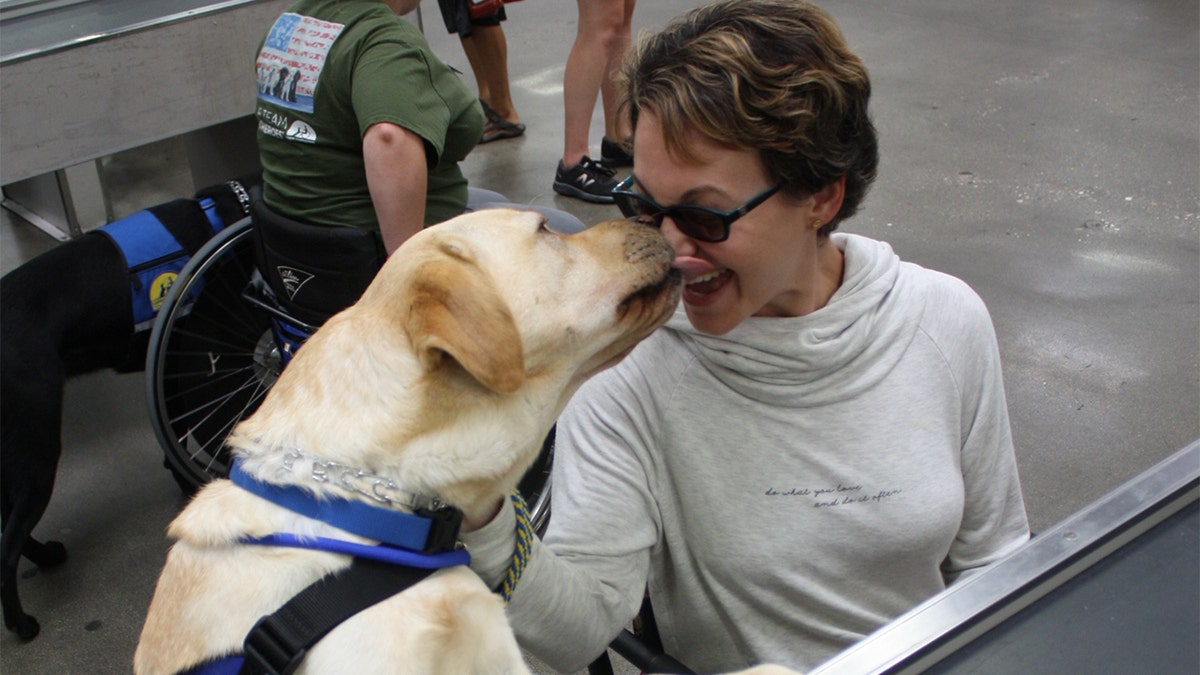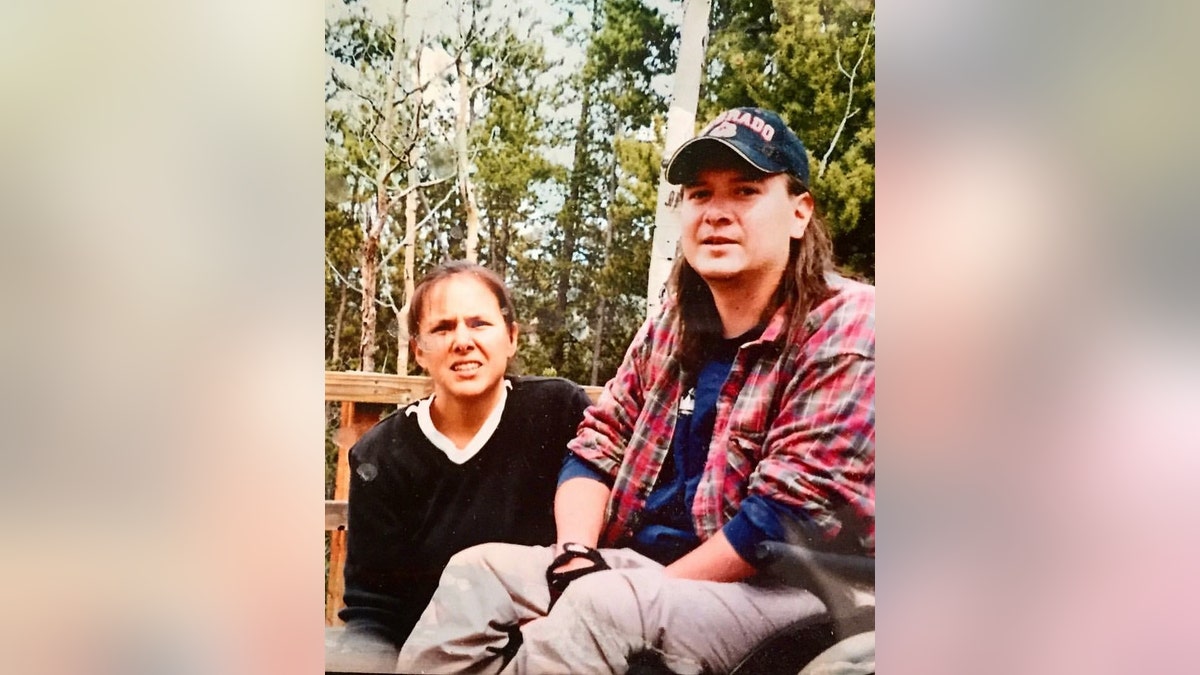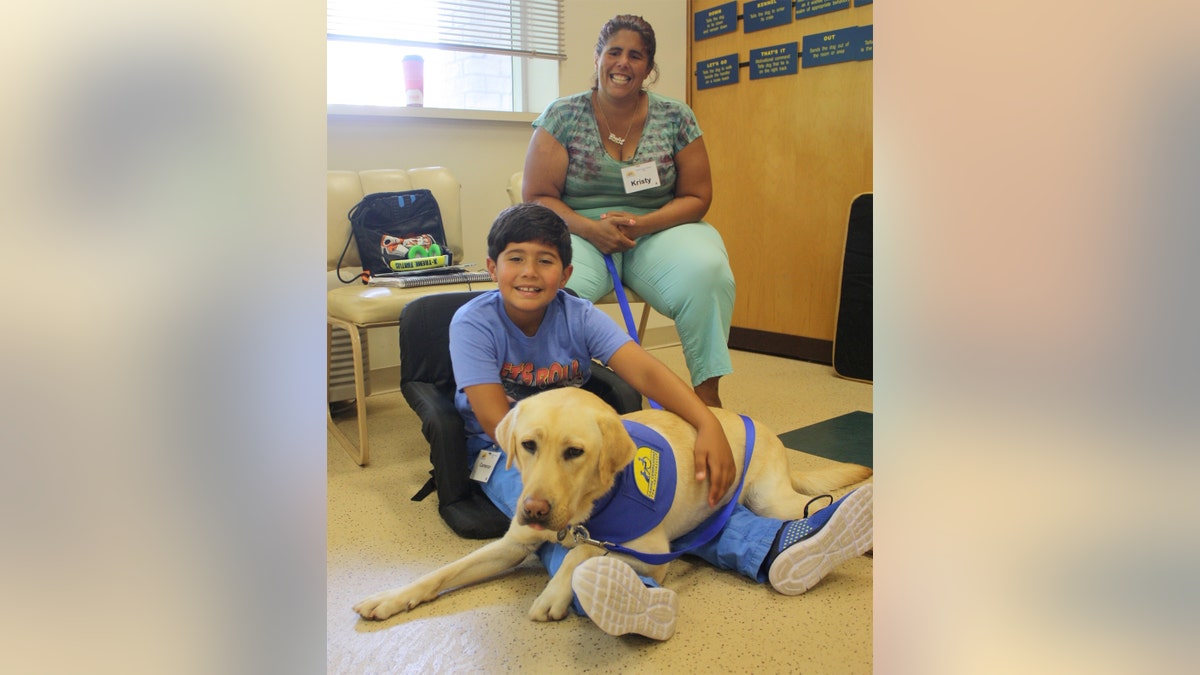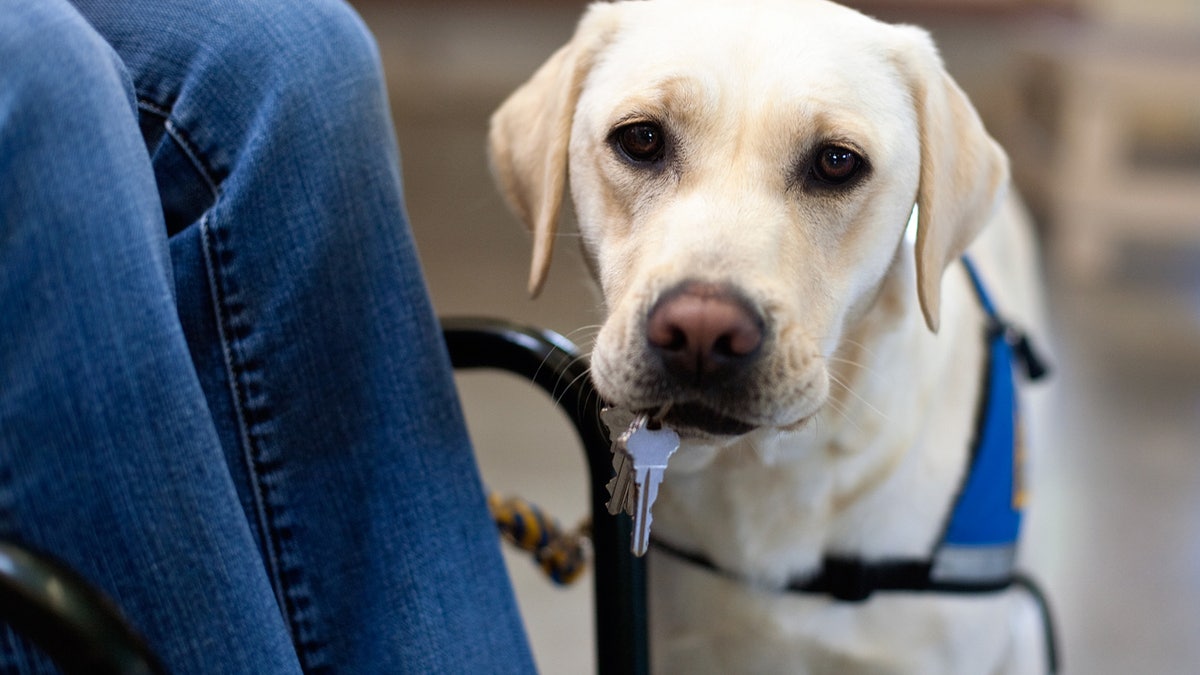
A few simple guidelines for properly interacting with, and respecting, handlers and their service dogs. (Jennifer Williams)
I didn't bring Spike to work the other day and no one said "hi" to me — instead, they said, “Where’s Spike?!”
Now I realize Spike is much cuter than I am.
I get it! And it’s great. I’ve made so many new friendships and conversations because of him. Easily a dozen times a day, I’m chatting with strangers simply because I have this cute, furry love nugget by my side 24/7.
HOW TO PROTECT DOGS FROM SUMMER HEAT STROKE
My late brother Kyle would often tell me how difficult it was to interact with people because they didn’t know how to approach him and his wheelchair. Kyle said people would avoid eye contact, and he found it difficult to strike up conversations with anyone who wasn’t a close friend or family member. I saw this many times, and it was heartbreaking.

Jennifer Williams chose to raise a Canine Companion in honor of her brother Kyle, who died from complications of paraplegia. (Jennifer Williams)
But service dogs can help with this challenge.
Sure, their primary role is to provide physical and psychological support to their human partner. But something you may not have considered is that a service dog can help “break the ice” for those with disabilities, and help someone feel more connected to the world around them.
However, there are a few things to consider during these interactions. And seeing as this week is International Assistance Dog Week, Canine Companions for Independence put together some etiquette guidelines for anyone interacting with a person and their service pet.
Assistance Dog Etiquette
So often when we see assistance dogs with their partners, we’re immediately drawn to admire them and even pet them. However well intentioned, it’s important to understand the rules surrounding working dogs. People with working dogs generally enjoy engaging with those drawn to their canine partners. Just remember to observe the tips below, and enjoy your interaction with the team.
- Don’t touch the dog without asking permission first. This is a distraction and may prevent the dog from tending to the human partner. Be sensitive to the fact the dog is working and may be in the middle of a command or direction from its human partner. Most dogs need to be told to be “released” from work mode to interact with someone.
- Please don’t feed the dog. It may be on a special diet. Food is the ultimate distraction to the working dog and can jeopardize the working assistance dog team.
- Speak to the person, not the assistance dog, and not to a parent, attendant or interpreter. That said, most handlers don't mind talking about assistance dogs and their dog specifically if they have the time. In fact, many often enjoy it.
- Do not whistle or make sounds to the dog as this again may provide a dangerous distraction.
- Never make assumptions about the individual’s intelligence, feelings or capabilities. Offers of help are appreciated, but always ask whether a person with a disability wants your help first. Usually, the human/dog team can get the task done by themselves.
- Always approach an assistance dog calmly and speak to their human partner before touching or addressing the dog.

(Jennifer Williams)
Disability Etiquette
It's important to be respectful of the handlers, too, and to use proper etiquette.
- Be mindful about physical contact. Don’t grab someone’s arm, don’t pat someone on the head, don’t touch their equipment.
- Don’t make assumptions about a person’s ability or inability to participate in an activity or do a task.
- Don’t ask about a person’s disability; they will share when they’re ready.
- Always put the person first. You're speaking to a person with a disability, not a disabled person.
- Avoid outdated terms like crippled, handicapped, wheelchair-bound or hearing-impaired.
- Avoid using disempowering words like "victim" or "suffers."
- Don’t wear heavy perfumes, as many people might have sensitivities to chemicals.
- If you have trouble understanding someone with a speech disability, ask them to repeat the part you didn’t understand.
- Make sure to acknowledge the person before acknowledging their assistance dog. And always ask before you pet. Remember: The dog is working, and we don’t want to distract.

(Canine Companions for Independence)
Please join Spike and me in acknowledging all the hardworking assistance dogs out there. And remember to say hi to their human partners first!
For more information about Canine Companions for Independence visit CCI.org.








































